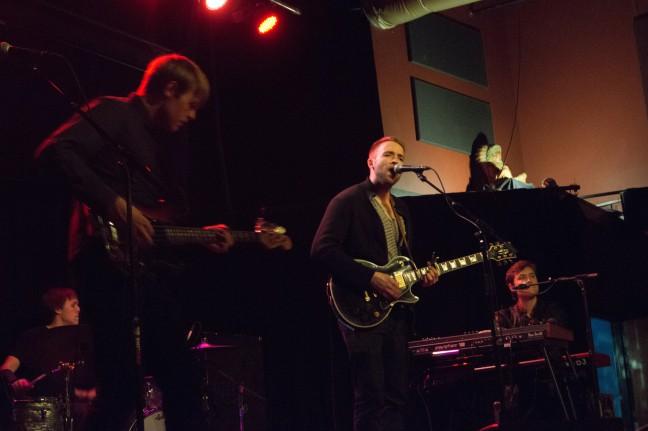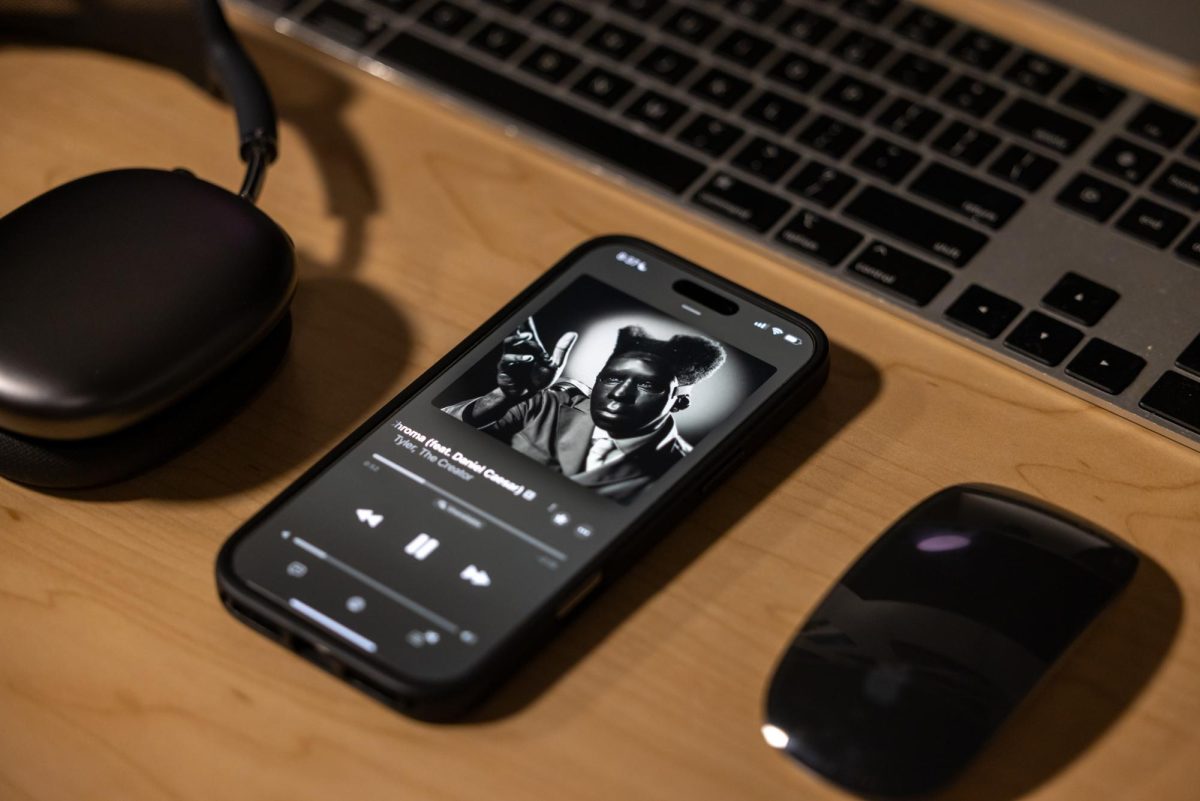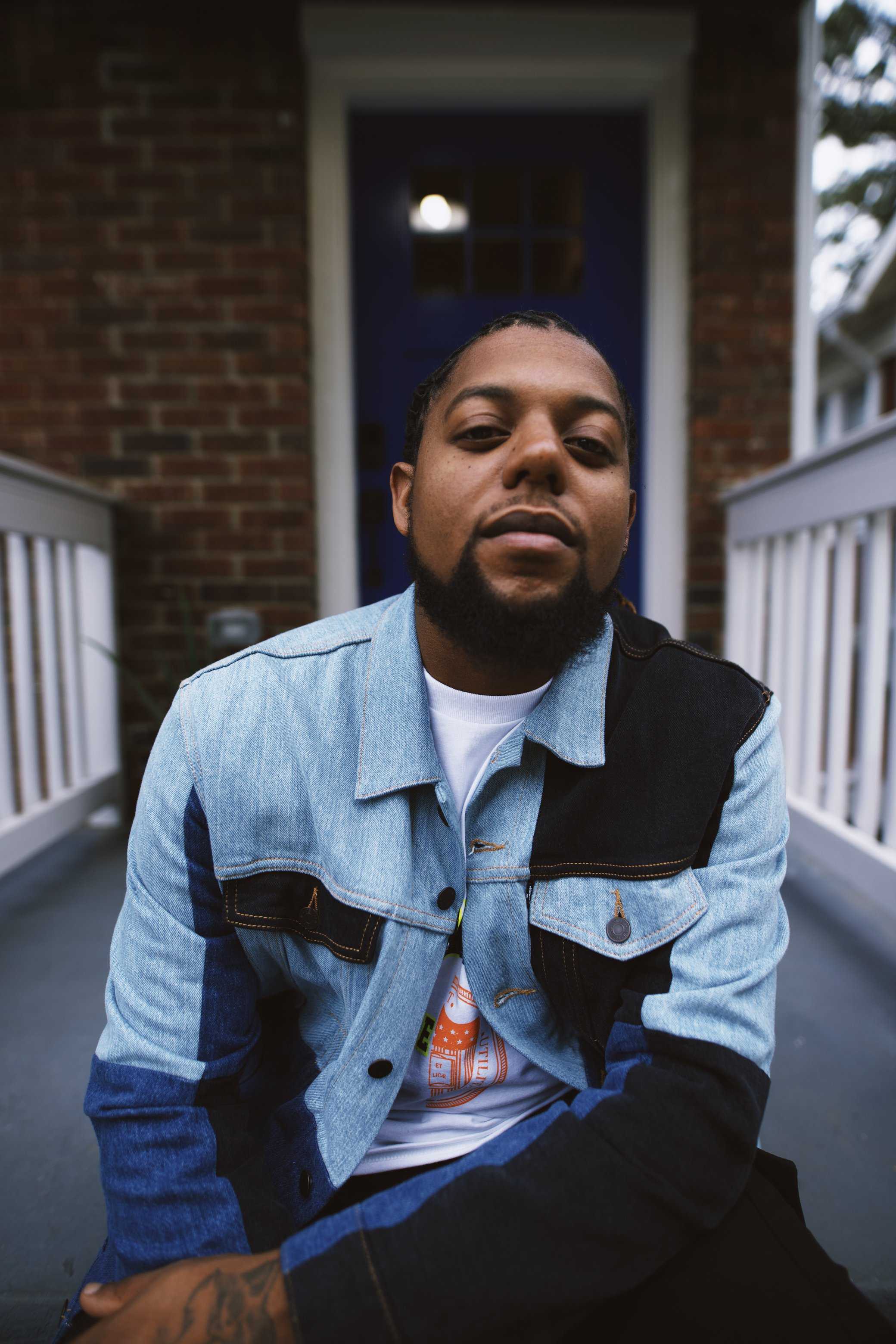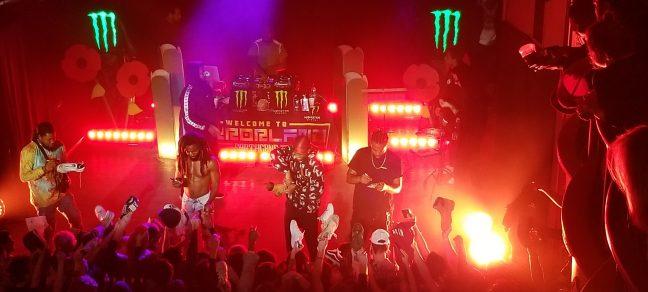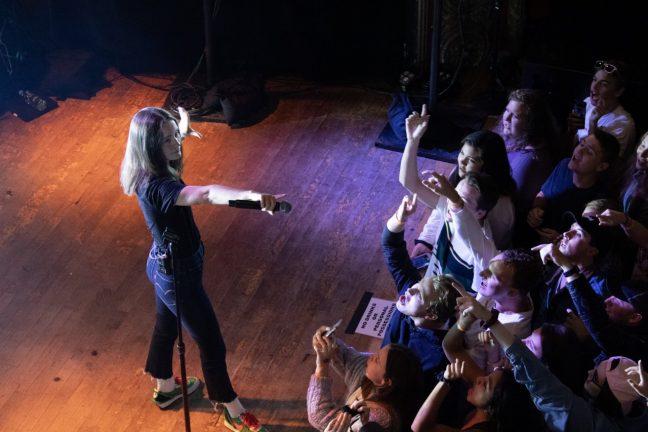A grand total of 12 people filled the High Noon Wednesday night; not exactly the turnout one would expect for a band that has released soon-to-be six full albums.
Though the audience did not reflect it, Chicago-based alternative rock band Filligar is a prolific act characterized by a smooth, nondescript sound. Though the quartet includes three Mathias brothers, their childhood friend and keyboardist Casey Gibson is the member that stood out. In addition to Gibson, openers The Pass and Catch Kid all had highly entertaining keyboardists that would define the night.
The first opener, 80s-inspired band from Louisville The Pass, created an enjoyable sound that would have prompted dancing with a larger audience. However, the band seemed distant. At one point, a small smile crept across keyboardist Brian Healey’s face, but that was the extent of the band’s emotional expression.
Frontman Kyle Peters conducted himself rather awkwardly, often singing with a constipated expression and stomping the stage. During the Pass’ most popular song, “Colors,” Peters briefly laid his head on Healey’s shoulder. It wasn’t clear if Peters was tired or just being dramatic. Either way the encounter was weird to watch.
The Pass often repeated certain phrases too many times, which got dull. The only thing that saved them were some impressive piano and synth riffs from the two keyboard set-ups; the synth added a captivating dimension to songs and differentiated them from one another.
Madison-based Catch Kid followed with a more comfortable feel. Several ladies decided to close in on the stage, which made the band seem less lonely. The dimmed spotlights also helped, as did the keyboard decked out in bright blue string lights.
Lead singer and frontman Nate Rusch dominated the piano with intense riffs reminiscent of Coldplay. The band even sang Coldplay’s “Fix You,” though Rusch cut off phrases abruptly and lacked the original track’s ease. Rusch danced as much as possible while still keying, leaning into and away from the keyboard. His vocals seemed juvenile and off-key at times, but his expert playing made up for it.
Finally Filligar quietly entered the stage, dressed in all black and blending with the dark backdrop. The aesthetic matched the unfocused manner in which their songs blended into one another, emphasized by their minimal talking between tracks.
But despite their low adrenaline, Filligar seemed quite comfortable on stage, and one could tell they were seasoned performers.
The band played old and new tracks, including one from their upcoming album Keepsakes of the Interior, “Never Better.” Lead singer Johnny Mathias stepped deliberately around the stage, but the real show was Gibson.
Gibson made weird facial expressions as he played his keyboard, sneakily smiling, scrunching his face and sticking out his tongue. Gibson’s antics were adorable and captured more attention than the actual music: dropping his head onto the keys, as if playing was just so exhausting he could no longer keep his head up; lifting his foot up randomly and search for somewhere to set it.
At one point, Gibson crouched down as if to crawl under the keyboard, but then stepped up on his seat and stretched his arms down to the keys, playing expertly as ever. In the end, Gibson’s piano and synth chords rescued the band from giving a generic indie rock performance.
After the show, Johnny Mathias commented on the sparse crowd and likened himself to a “hippo in a zoo.” While both crowd and metaphorical zoo animal can see each other, there’s no interaction. He said since playing music is a very emotional experience, when you can’t see people’s faces, you can’t make an emotional connection with them.
And unless you met Filligar in person, that is how they appear: just some loud musicians on a far away stage.


